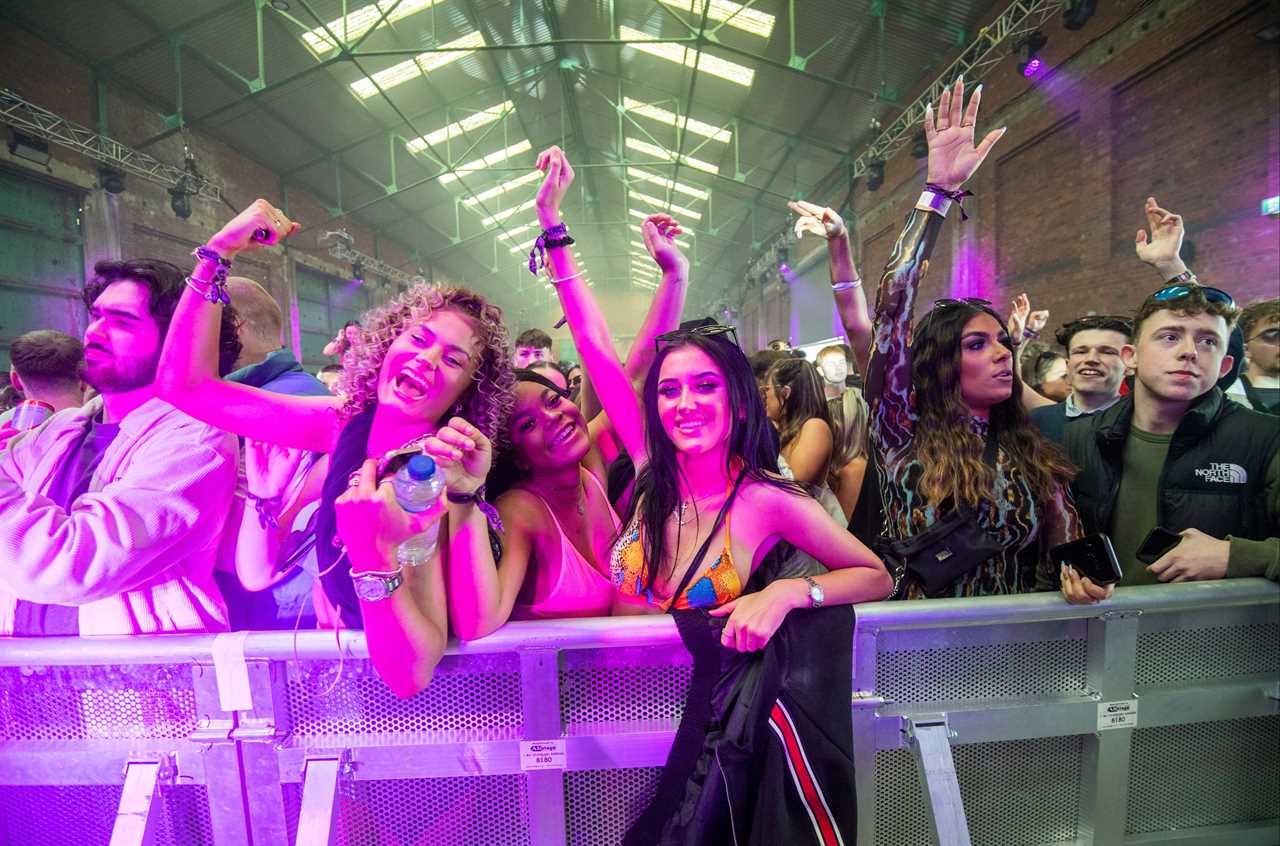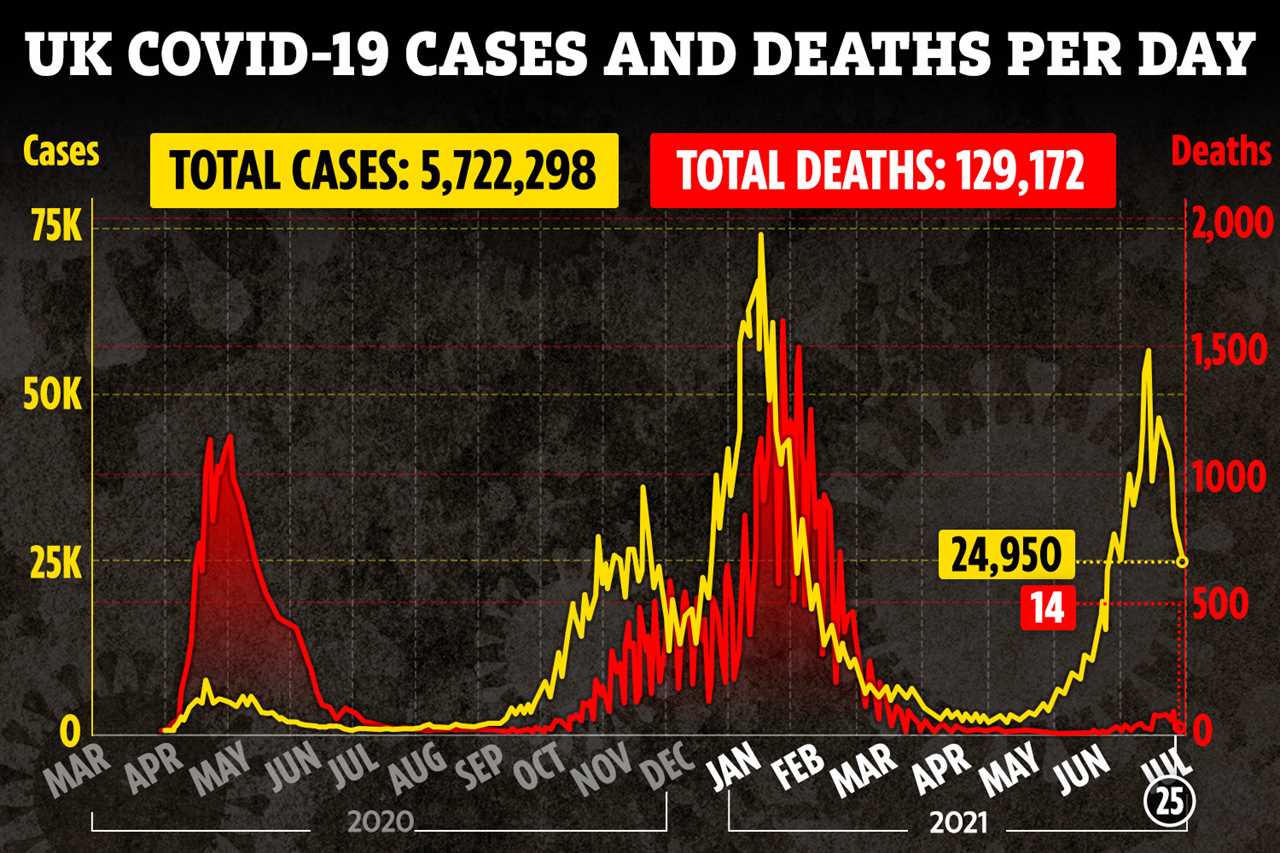FOR six days in a row Covid cases have fallen, raising hopes the third wave has peaked.
Health Secretary Sajid Javid warned three weeks ago that cases could rocket to 100,000 a day as restrictions eased.


And Professor Neil Ferguson cautioned that daily infections could be nearer 200,000 in the worst-case scenario.
Meanwhile, the World Health Organisation labelled our “big bang” unlockdown model “epidemiological stupidity”.
But today just 24,950 new cases were recorded, down from 29,173 on Sunday, and 31,795 on Saturday. In total there has been a drop of 46 per cent in the last week.
Here, we ask experts, what could be driving the fall in cases and what comes next . . .
Cases falling is good news. Does it mean we are past the peak?
The sharp drop has surprised experts.
Dr Sarah Jarvis, GP and clinical director of Patientaccess.com says: “We all hope it’s because the wave has peaked. But there are other reasons that are less positive.
“One could be the series of mass events just prior to the July 19 unlocking — notably the Euros where thousands flocked to Wembley Stadium.”
Dr Simon Clarke, professor in cellular microbiology at the University of Reading, says: “It might be that we’re returning to where we would have been had the Euros not happened.
“During the Euros, people were going to the matches, to pubs and bars and people’s houses to watch the matches.”

Read our coronavirus live blog for the latest updates
Could schools being out for summer be having an impact?
Dr Clarke says: “School attendance is a driver for flu and, although some studies have refuted a link with Covid, I believe part of the reason the Government went with July 19 (as Freedom Day) was it coincided with school holidays.”
But Professor Lawrence Young, a specialist in molecular oncology at Warwick University says the fall in numbers could be due to a drop in testing.
He says: “One thing that is a concern is that school children were being tested twice a week with lateral flow tests, and added to the figures.”
Dr Jarvis agrees: “Term time is finished and many children aren’t doing regular tests.”
Has the heatwave of the past ten days had an effect on the pandemic?
The experts believe it could have. Prof Young says: “In hot weather you’re more inclined to mix outside.
“And we know from lots of studies on respiratory viruses and aerosols, which is how the virus spreads, it doesn’t like the hot weather. It makes it slightly less infectious.”
Dr Jarvis agrees: “Ventilation and fresh air are well proven to reduce the chance of passing the virus on.”
So what happens next could partly depend on the weather.
Dr Clarke says: “If we see a wet August that’s going to drive people inside which could push cases up.
“They’ll still want to go to the pub or to restaurants for dinner, and cinemas and places like that will be open.”
Could fears over the impact of the “pingdemic” also be playing a part?
Yes, says Dr Jarvis. She explains: “Most worryingly, a large number of people seem to be deleting the Covid-19 app to avoid being ‘pinged’.
Prof Young warns: “The mixed messaging on face masks, isolation and travel makes people more complacent.
“They think, ‘If the Government isn’t worried, delete the app, why should we bother?’
“It might be reflected in the number of people who get tested — they may think they can’t work, go on holiday or get married.
“We know people aren’t responding to ‘pings’ and are deleting the app. So is this a true reflection of numbers if people aren’t coming forward to be tested?”






